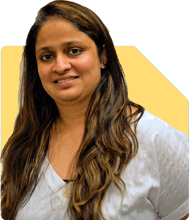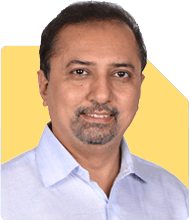Patrick Dsouza |223 Answers |Ask -Follow
CAT, XAT, CMAT, CET Expert - Answered on Apr 22, 2024
Along with his wife, Rochelle, he trains students for competitive management entrance exams such as the Common Admission Test, the Xavier Aptitude Test, Common Management Admission Test and the Common Entrance Test.
They also train students for group discussions and interviews.
Patrick has scored in the 100 percentile six times in CAT. He achieved the first rank in XAT twice, in CET thrice and once in the Narsee Monjee Management Aptitude Test.
Apart from coaching students for MBA exams, Patrick and Rochelle have trained aspirants from the IIMs, the Jamnalal Bajaj Institute of Management Studies and the S P Jain Institute of Management Studies and Research for campus placements.
Patrick has been a panellist on the group discussion and panel interview rounds for some of the top management colleges in Mumbai.
He has graduated in mechanical engineering from the Motilal Nehru National Institute of Technology, Allahabad. He has completed his masters in management from the Jamnalal Bajaj Institute of Management Studies, Mumbai.... more

Hi Rajesh, I am a MBA with 20 years of experience. Lost job recently due to winding up of the company I worked for. Despite having rich experience in finance and accounting along with MNC experience, I am finding it difficult to get a suitable job at this time. I am also passionate about cooking and idea of starting a restaurant to serve 2 iconic coastal dishes to people in Bangalore at affordable price strikes me all the time. Should I listen to my heart and go ahead with business idea or should I keep looking out for jobs as it assures me guaranteed monthly salaries. I am a family man. Plz advice
You may like to see similar questions and answers below
Khevna Shah |16 Answers |Ask -Follow
HR Expert - Answered on Feb 08, 2023
Mayank Rautela |238 Answers |Ask -Follow
HR Expert - Answered on Feb 08, 2023
Chandu Nair |55 Answers |Ask -Follow
VC, Angel Investing, Entrepreneurship Expert - Answered on Feb 12, 2024
Krishna Kumar |266 Answers |Ask -Follow
Workplace Expert - Answered on Mar 29, 2024
Patrick Dsouza |223 Answers |Ask -Follow
CAT, XAT, CMAT, CET Expert - Answered on May 08, 2024
Patrick Dsouza |223 Answers |Ask -Follow
CAT, XAT, CMAT, CET Expert - Answered on May 08, 2024
Patrick Dsouza |223 Answers |Ask -Follow
CAT, XAT, CMAT, CET Expert - Answered on May 08, 2024
Patrick Dsouza |223 Answers |Ask -Follow
CAT, XAT, CMAT, CET Expert - Answered on May 08, 2024
Patrick Dsouza |223 Answers |Ask -Follow
CAT, XAT, CMAT, CET Expert - Answered on May 08, 2024
Ramalingam Kalirajan |1728 Answers |Ask -Follow
Mutual Funds, Financial Planning Expert - Answered on May 08, 2024
Ramalingam Kalirajan |1728 Answers |Ask -Follow
Mutual Funds, Financial Planning Expert - Answered on May 08, 2024
Ramalingam Kalirajan |1728 Answers |Ask -Follow
Mutual Funds, Financial Planning Expert - Answered on May 08, 2024
Ramalingam Kalirajan |1728 Answers |Ask -Follow
Mutual Funds, Financial Planning Expert - Answered on May 08, 2024
Ramalingam Kalirajan |1728 Answers |Ask -Follow
Mutual Funds, Financial Planning Expert - Answered on May 08, 2024

























